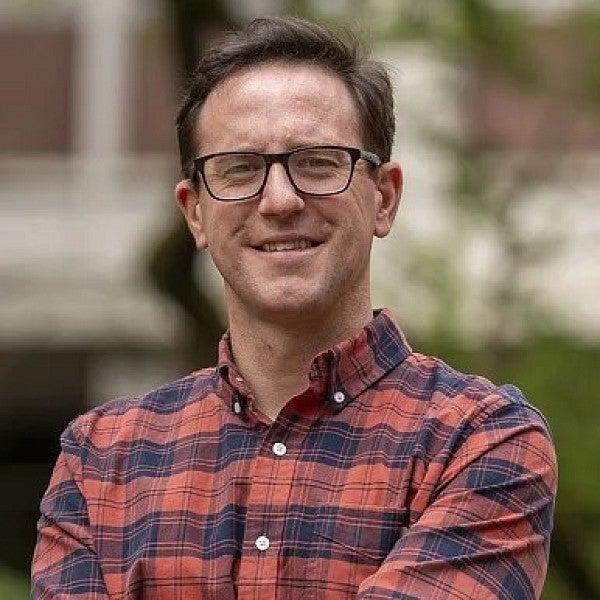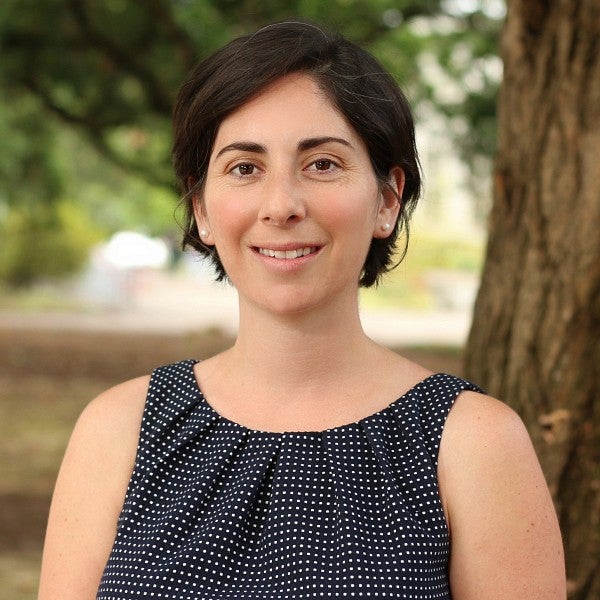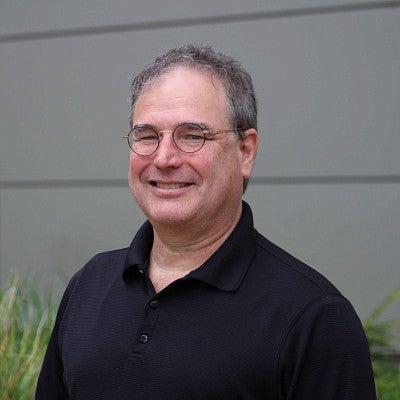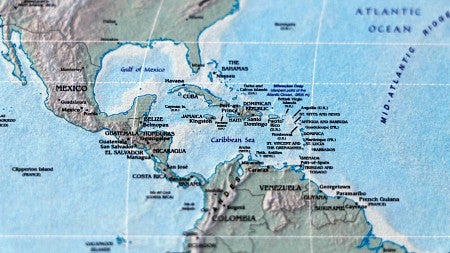
Social sciences provide an analytical approach to society’s problems. As a result, faculty and students in the social sciences often focus on complex and intersectional issues such as racism, international conflict and war, climate change, and poverty. Through an objective and empirical approach to these issues, the goal is to generate genuine passion and equip future leaders with the skills they need to address the world’s challenges. Explore majors, minors, concentrations, and academic programs in the social sciences.
African Studies
Anthropology
Asian Studies
Black Studies
Climate Studies
Commerce and Society
Criminology
Economics
Environmental Science
Environmental Studies
News from Social Sciences
All news »
We Love Our Supporters
Gifts to the College of Arts and Sciences can help our students make the most of their college careers. To do this, CAS needs your support. Your contributions help us ensure that teaching, research, advising, mentoring, and support services are fully available to every student. Thank you!
World-Class Faculty in the Social Sciences

Ashley Cordes
Assistant Professor of Indigenous Media in Environmental Studies and Data Science
Ashely Cordes is an academic expert in Indigenous data sovereignty, artificial intelligence, blockchain technology and cryptocurrency. Her research explores how Indigenous communities can leverage technological utilities—such as cryptocurrency and AI—for Tribal economic independence, representational and data sovereignty, and preservation of knowledge systems.

Neil O'Brian
Assistant Professor of Political Science
Neil O’Brian is an academic expert in U.S. politics focusing on public opinion, political parties, and polarization. His recent work has focused on how people’s perceptions of politics and current events affect their political attitudes. He’s recently published the book The Roots of Polarization: From the Racial Realignment to the Culture Wars (University of Chicago Press).
O’Brian is the second UO researcher to receive an Andrew Carnegie Fellowship. O’Brian is using the fellowship to further explore what he calls the “doctor’s project.” The start of this research began when he identified a partisan divide in the trust people have in their physicians; those on the political right expressed less trust in their doctors than those on the left. This is a recent phenomenon, as data showed no difference in trust in one’s doctor until a shift in 2020-21, during the emergence of the COVID-19 pandemic. O’Brian argues the partisan divide over public health measures—such as masking and vaccines—led to less trust in the medicine industry.

Melissa Graboyes
Associate Professor of History, Global Health Program
Melissa Graboyes is a historian of modern Africa and a global health specialist whose research focuses primarily on medicine and science in the East African region.
Graboyes’ current research projects have been supported by major research funds. Her work on the history of malaria elimination on the African continent is funded by a five-year National Science Foundation CAREER award. A three-year collaborative research project on returning research results from social science disciplines to African participants—removing costly barriers to make findings more accessible—is funded with a three-year NSF award. She is also working on global health research at the local Eugene level through her project on aspects of care for people who inject drugs.
As a mentor, Graboyes works with undergraduate students in research groups. She leads the Global Health Research Group, which helps students gain skills and tools for conducting undergraduate research. The group consists of students interested in global health-related topics, as well as students majoring in a STEM field who are interested in ethics, history and the processes of science.

School of Global Studies and Languages
At the School of Global Studies and Languages (GSL), UO students engage with diverse cultures, languages, histories, and lifeways across the world. Students of the social sciences, from Anthropology to Sociology, will broaden and deepen their education in their field by viewing it—and experiencing it—through a global lens. GSL prepares our graduates for life after college with an interdisciplinary curriculum, innovative language teaching, abundant learning opportunities outside the classroom, and paths of study that lead to many options for real-world careers.
Research in the Social Sciences
Research in the social sciences investigates human behavior and the motivations that influence it. Although some of our research occurs in the lab, much of it is conducted out in the field using a variety of methodological approaches, from exploratory to experimental. The results of our research often carry societal-level implications and may point to solutions for addressing local, national, or global challenges.
Explore Other Majors and Minors in the College of Arts and Sciences
Meet Our Dean
Welcome to the social sciences division of the College of Arts and Sciences. Within our community, we address some of the world’s problems—big or small—through interdisciplinary research and critical thinking. What drives us is a passion for exploring human behavior and society.
The social sciences provide the necessary foundation for any academic inquiry, from the creative arts to the natural sciences. Inside the classroom, we lead courses that are engaging and thought-provoking, inspiring students to become better citizens of our world and work toward a more inclusive future.
We also believe real-world experience offers some of the most impactful learning opportunities. From internships to study abroad trips that offer new cultural experiences, our students regularly engage in hands-on learning work that reaches across social, disciplinary, and geographic boundaries, allowing them to forge new connections and spark new ideas.
We look forward to changing the world with you.
Bruce McGough
Divisional Associate Dean, Social Sciences

Happening at CAS
2:00–5:00 p.m.
The Department of Romance Languages will host three exciting guest speakers as part of a Symposium on Gender, Race, and Empire. All sessions will be in the Knight Library Dream Lab (Knight 121).
May 1, 2:00
Prof. Johanna Montlouis-Gabriel (French, Emory University): "Textured Archives: An Afrofeminist Creative Praxis of Hair, History, and Intimate Methodologies"
May 1, 3:30
Prof. Nicholas Jones (Spanish and Portuguese, Yale University): "Cervantine Blackness: A Breakup with Academia's Languages for a Revolutionary Situation"
May 2, 12:00
Prof. Estefanía Bournot (Latin America Studies, Harvard University and the Austrian Academy of Sciences): "The Specular Atlantic: South-South Readings and Diasporic (Be)Longings"
4:00–5:30 p.m.
Larry Diamond is a senior fellow at the Hoover Institution and the Mosbacher Senior Fellow in Global Democracy at the Freeman Spogli Institute for International Studies at Stanford University. He also chairs the Hoover Institution Project on Taiwan in the Indo-Pacific Region and is the principal investigator of the Global Digital Policy Incubator, part of Stanford’s Cyber Policy Center. Diamond has served as a consultant to the US Agency for International Development (USAID) and advised and lectured to the World Bank, the United Nations, the State Department, and other agencies dealing with governance and development. His books include In Search of Democracy (2016), and The Spirit of Democracy (2008). He has edited or coedited some fifty books on democratic development around the world.
Francis Fukuyama is the Olivier Nomellini Senior Fellow at Stanford University's Freeman Spogli Institute for International Studies and a faculty member of FSI's Center on Democracy, Development and the Rule of Law. He is also director of Stanford's Ford Dorsey Master's in International Policy. Fukuyama has written widely on issues in development and international politics. His 1992 book, The End of History and the Last Man, has appeared in over twenty foreign editions. His latest book, Liberalism and Its Discontents, was published in May 2022.
This event is sponsored by the School of Global Studies and Languages, Global Studies Institute in the Division of Global Engagement, Wayne Morse Center for Law and Politics, and the Department of Political Science.
Free and open to the public.
4:00–5:00 p.m.
The challenges of climate change and inequality are caught in a dynamic of dual acceleration. That is, racial, socioeconomic, and global inequality help drive climate change. In turn, climate change helps drive racial, socioeconomic, and global inequality. Local leaders and activists are critical actors in breaking this momentum. When they invest in rebuilding democracy and social networks from below, they can help adapt communities to climate change and recover from natural disasters. Those same measures also help protect vulnerable people from the worst harms of poverty, social isolation, and deteriorated public services. Using examples of place-based struggles to empower and organize poor communities, this talk will focus on local democracy as one solution to the problem of accelerating climate change and inequality.
Michelle Wilde Anderson is a professor of local government law, poverty, environmental justice, and state/local climate law at Stanford Law School and the Stanford School of Sustainability. Her book The Fight to Save the Town: Reimagining Discarded America (published by Simon & Schuster) was awarded the 2023 Zócalo Public Square Book Prize for Nonfiction. Her other writing has appeared in The New York Times, Los Angeles Times, and dozens of other publications. The American Law Institute (ALI) awarded her their Early Career Scholars Medal in 2019. Anderson is the Chair of the Board of Directors of the National Housing Law Project and a board member for the East Bay Community Law Center in Oakland. She lives with her family in San Francisco.
noon
The Department of Romance Languages will host three exciting guest speakers as part of a Symposium on Gender, Race, and Empire. All sessions will be in the Knight Library Dream Lab (Knight 121).
May 1, 2:00
Prof. Johanna Montlouis-Gabriel (French, Emory University): "Textured Archives: An Afrofeminist Creative Praxis of Hair, History, and Intimate Methodologies"
May 1, 3:30
Prof. Nicholas Jones (Spanish and Portuguese, Yale University): "Cervantine Blackness: A Breakup with Academia's Languages for a Revolutionary Situation"
May 2, 12:00
Prof. Estefanía Bournot (Latin America Studies, Harvard University and the Austrian Academy of Sciences): "The Specular Atlantic: South-South Readings and Diasporic (Be)Longings"








